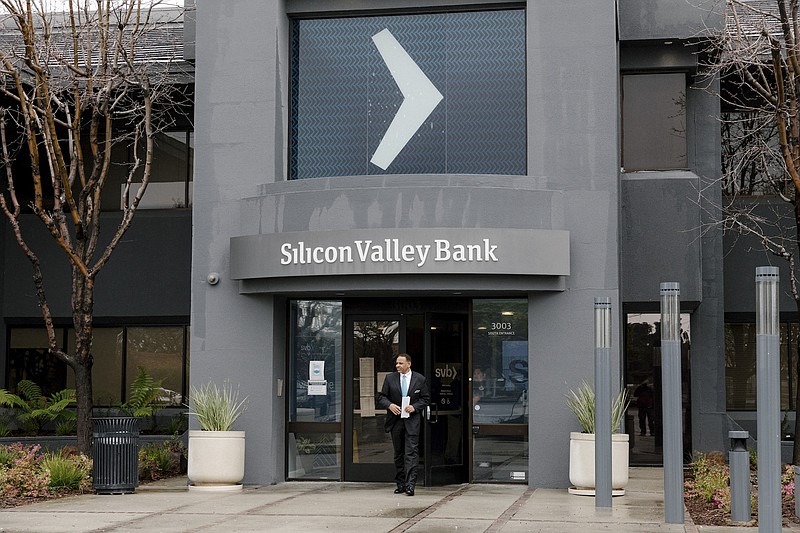George Bailey knew how to fend off a bank run. When the citizens of Bedford Falls ran to the bank to demand a return of their deposits, they encountered George, in the form of Jimmy Stewart, guarding the vault with a moral lesson.
"The money's not there," he explained, as banker turned preacher, pleading that one family's savings had been invested in another family's home. To panic, he argued, would hurt the entire community.
George at least had time to run to the bank and summon his thoughts. Contrast that with what happened at the Silicon Valley Bank in California late last week.
By various accounts, a lot of naturally jumpy venture capitalists with large deposits at the bank were, in essence, in a group chat together. Within seconds, panic set in as the word flew around the tech world that the bank was in danger of collapse.
The run on the bank happened so quickly, George would not have had time to tie his shoes before the digital doors were locked and regulators appeared.
By the end of the weekend, federal officials were not only dealing with the collapse of a second institution, Signature Bank, but had come up with a novel solution to both insolvencies that involved disregarding the $250,000 limit on federal account insurance and making all the depositors immediately whole, including those with accounts containing hundreds of millions of dollars. The political fallout was managed by insisting that instead of spending any taxpayers' money, there will be a special assessment on the banking sector itself.
For banks, this was not unlike a gut-wrenching special condo owners assessment for a building needing a new roof.
On balance, this was the best solution to a situation with no good solution.
The feds insisted this was no bailout, although you could argue that aiding depositors, if not share and bondholders in the bank itself, was still a bailout.
So much for moral hazard on both sides. And anyone who carefully has kept single accounts within that $250,000 limit, or who forgo better returns for FDIC insurance, would appear to have been wasting their time.
And it's overly naive to say that the "banking industry" will cover the mistakes of one of their own. In the end, much of that money will be extracted from consumers and businesses through higher fees, charges and interest rates.
On the other hand, the problems at SVB could have been catastrophic. Roku, for example, reportedly had hundreds of millions on deposit there. If you worked for Roku, you'd be happy that money was still there when payroll came due. If it was not, the panic would only have increased and ricocheted everywhere. The Fed had no choice.
It's a topsy-turvy world. Clearly, the Biden administration misread how much money Americans were stashing away during COVID-19 and consequently handed out too much in stimulus funds. Inflation has been the result, and stubborn inflation, to boot. At the same time, the Trump administration's loosening of liquidity and other regulatory requirements for banks now looks foolish. They should be rethought and reinstated.
But the most telling part of the events of the last few days is how fast the panic spread. You can also chalk up this fiasco to the perils of instant communication. People tend to be unsophisticated in the understanding of whether it's the fiscal facts themselves that are roiling the economy, or how fast knowledge and rumor spread.
Banking is not the only sector with this question. It also applies to the crime rate in Chicago and elsewhere. Is there really more violent crime or faster awareness of the danger of violent crime? Perhaps both, but it has changed how people feel. And vote.
As for bank runs? Today, George Bailey would be an hour late and a whole lot of dollars short.
The Chicago Tribune
